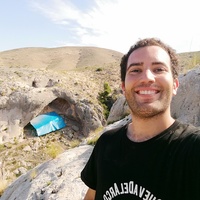
Gonzalo Linares Matás
DPhil in Archaeology at the University of Oxford (St. Hugh's College) -
Late Holocene Settlement Dynamics and trans-Saharan connections in southeastern Mauritania: A Remote Sensing approach
My Master's dissertation was based on the statistical analysis of 3D GMM cut-mark data to identify the kind of tools used for carcass processing at Valdocarros 2, a Middle Pleistocene open-air site in the Jarama River valley (Madrid, Spain). My main research interest is bone taphonomy, combining biomolecular, zooarchaeological and statistical learning approaches.
Other research interests:
Macrovertebrate taphonomy at the late Early Pleistocene site of Cueva Negra del Estrecho del Río Quípar
Identifying and characterising canid alterations in Pleistocene bone assemblages
Systematization of Neanderthal tortoise consumption patterns
Archaeology of the Sahel, with particular emphasis on SE Mauritania
Human burial taphonomy in karstic contexts
The history of archaeology as a method of inquiry into the human past
Executive Editor of the International Journal of Student Research in Archaeology.
Member of the World Archaeological Congress Student Committee (2016-)
President of the Oxford University Archaeological Society for Michaelmas Term 2015.
Coordinator of the OUAS IV National Undergraduate Conference in Archaeology: "Integrating Experiences in Archaeology" (March 2016).
Community Manager of @QHistoria (Twitter, 21k followers)
Supervisors: Peter Mitchell, Nick Barton, Ignacio Martín Lerma, and José Yravedra
Address: Oxford, Oxfordshire, UK
Murcia, Spain
Late Holocene Settlement Dynamics and trans-Saharan connections in southeastern Mauritania: A Remote Sensing approach
My Master's dissertation was based on the statistical analysis of 3D GMM cut-mark data to identify the kind of tools used for carcass processing at Valdocarros 2, a Middle Pleistocene open-air site in the Jarama River valley (Madrid, Spain). My main research interest is bone taphonomy, combining biomolecular, zooarchaeological and statistical learning approaches.
Other research interests:
Macrovertebrate taphonomy at the late Early Pleistocene site of Cueva Negra del Estrecho del Río Quípar
Identifying and characterising canid alterations in Pleistocene bone assemblages
Systematization of Neanderthal tortoise consumption patterns
Archaeology of the Sahel, with particular emphasis on SE Mauritania
Human burial taphonomy in karstic contexts
The history of archaeology as a method of inquiry into the human past
Executive Editor of the International Journal of Student Research in Archaeology.
Member of the World Archaeological Congress Student Committee (2016-)
President of the Oxford University Archaeological Society for Michaelmas Term 2015.
Coordinator of the OUAS IV National Undergraduate Conference in Archaeology: "Integrating Experiences in Archaeology" (March 2016).
Community Manager of @QHistoria (Twitter, 21k followers)
Supervisors: Peter Mitchell, Nick Barton, Ignacio Martín Lerma, and José Yravedra
Address: Oxford, Oxfordshire, UK
Murcia, Spain
less
Related Authors
Stefania Titton
Universitat Rovira i Virgili
Antonio Rodríguez-Hidalgo
Universidad Complutense de Madrid
Olivier Notter
Muséum National d'Histoire Naturelle
Antonio Pineda
Centre National de la Recherche Scientifique
annalisa chieli
University of Barcelona
InterestsView All (54)

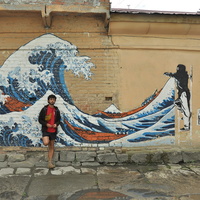
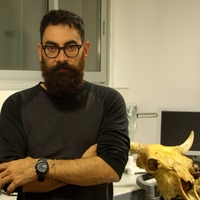
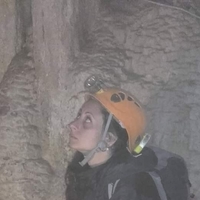
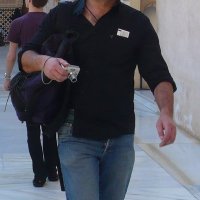

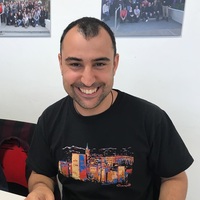

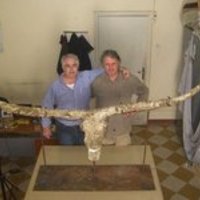

Uploads
Papers by Gonzalo Linares Matás
Gonzalo Linares Matás - Presentation of the third issue of IJSRA
Interview
Cherene de Bruyn, Jacqueline Jordaan - Regional feature: Perspectives from southern African archaeology professionals
II Articles
Valletta Verezen - The Crumbling Wonder: A damage- and risk-assessment of sandstone monuments and natural features in the Petra Archaeological Park (Jordan)
Frances Koziar, Camilo Gomez - From Colonialism to Nationalism, the Indian to Indigenismo: A History of Central Mexican Archaeology
Dannielle Croucher - Quantification of Interpersonal Violence in Skeletal Remains from Medieval and Post-Medieval London
Amanda Padoan - Gendering the Traces
III Conference Reviews
Rebekah Hawkins, Jacqueline Matthews, Francesca McMaster - Australian Archaeological Association 2016 Conference Review
Barney Harris, Dannielle Croucher, Hayden McKee - The 3rd Neolithic and Early Bronze Age Research Student Symposium, UCL
IV Book Review - Ariane Maggio
Review of Crowder, C. & Stout, S. D. (eds.) 2012. Bone Histology: An Anthropological Perspective
closer.
(...)
The two main themes for this issue are ‘heritage’ and ‘gender in archaeology’. The first two contributions tackle the issue of how heritage is imagined and constructed, and the various challenges facing preservation issues at the moment. The following two assess
the extent to which contextualised osteoarchaeological evidence may inform us about attitudes to gendered persons and their bodies. Despite potential limitations, it will continue to grow as a fundamental avenue of enquiry into past human experiences.
As part of this issue, we have also incorporated an original feature, combining a series of interviews of leading and aspiring archaeologists in a comparative regional overview of the discipline in South Africa.
We welcome papers addressing any topic and temporal sequence of archaeological interest, based in any geographical area, and engaging with any methodological and/or theoretical framework. IJSRA encourages submissions of papers such as:
• Research articles (up to 6,500 words).
• Literature reviews and academic essays (up to 5,000 words).
• ‘Debate’ articles based on unpublished or published evidence and that may challenge traditional, long-established academic perspectives (up to 6,000 words).
• Condensed field reports or monographs (up to 4,000 words).
• Reviews of Books relevant to the discipline, or Reviews of archaeological conferences, focusing particularly on the role and participation of students.
The International Journal of Student Research in Archaeology does not charge any submission or publication fees. Authors must confirm that the content of their original research papers has not been published or accepted for publication elsewhere (although previous presentation in poster format and at conferences is accepted).
All submissions should be full papers written in English or another field-relevant language. If the paper is submitted in a language other than English, an extended summary in English must be provided. Assistance with academic English of publishable articles will be provided if required.
The recommended deadline for submissions for our next issue is 15th March 2017. Please note that we are also accepting submissions on a rolling basis throughout the year.
If you have any questions, please do not hesitate to e-mail us at: editor.ijsra@gmail.com
At IJSRA, we work everyday on a voluntary basis to transform the academic publishing landscape, in our firm belief that authors should not have to pay for publishing, and that making research freely available to a global readership help address growing (academic) inequalities worldwide.
We aim to make an impact through an independent, unaffiliated, open-access student forum, without any submission, publication, or subscription fees.
Therefore, what better time to publish our second issue that in this merry Christmas Eve. We have an amazing variety of contents, including original fieldwork in Botswana, a model for undergraduate skills development, Indo-Greek coinage, heritage legislation in the Philippines, medieval perceptions and attitudes to health, a reassessment of Natufian sedentism, a Big Data cross-cultural analysis, a book review, and reviews of many conferences! We hope you enjoy reading these outstanding examples of student scholarship!
We are now accepting submissions for our third issues; we will be reviewing manuscripts on a rolling basis, so submit when you're ready! Recommended deadline: March 15th
As part of our constant efforts to reach as wide an audience as possible, we are always looking for people with diverse research interests to join our growing international team. If you are committed to improve the presence of excellent student scholarship in archaeology, please do get in touch!
Our aim is to become a free, open-access, global forum for the exchange of excellent student scholarship in a context of constructive dialogue and inclusiveness, where students interested in improving our social reality, coming from different backgrounds, can share their ideas and discuss solutions to the challenges facing our discipline.
This Journal seeks to enhance the academic experience of students worldwide by publishing their quality research, review articles, perspectives about the state of the field and any additional material useful for students and anyone interested in any aspect of archaeology.
We are run by students on a voluntary, not-for-profit basis.
We believe that getting involved in the publication process, both in its author and editor aspects, is a great opportunity for university students to develop their writing, reviewing and publishing skills.
Our Journal values and encourages diversity. It aims to foster global participation and to attract the submission of the best student research in archaeology, regardless of academic institution, nationality, gender, ethnicity or religion, in order to enhance international cooperation and mutual understanding.
To download the higher resolution file, please follow the associated link
*
Gonzalo Linares Matás is a third-year undergraduate student reading the BA Archaeology & Anthropology at St Hugh's College, University of Oxford (UK). He was the former President of the Oxford University Archaeology Society (Michaelmas 2015), and he has recently been invited to join the WAC (World Archaeology Congress) Student Committee. He is particularly interested in the socio-political contexts of heritage management and ownership, contemporary archaeological theory, and the histories of the academic disciplines of archaeology and anthropology as practical modes of inquiry. He is doing his undergraduate dissertation on the socioeconomic dimensions of early bone technology, focusing on the late Early Pleistocene assemblage at the site of Cueva Negra del Estrecho del Río Quípar (Murcia, Spain). He is also very interested in transforming the academic publishing landscape.
We aim to foster global participation and to attract the submission of the best student research in archaeology, regardless of academic institution, nationality, gender, ethnicity or religion, in order to enhance international cooperation and mutual understanding.
This Journal does not charge submission or publication fees. The deadline for submissions for the first issue is September 1, 2015.
Procuró que los combatientes armados de distinta manera se complementaran en sus capacidades, formando agrupamientos tácticos, base de los Tercios, dominadores de los campos de batalla europeosdurante siglo y medio.
Sus enseñanzas sobre el aprovechamiento del terreno pasaron a convertirse en algo básico de la praxis militar; llevó a Italia la sorpresa para multiplicar la eficacia de sus fuerzas, y con ello devolvió a la guerra europea uno de sus principios fundamentales, mereciendo por ello un puesto entre los grandes jefes militares de la Historia.
Potential student speakers from any institution are invited to approach the concept of 'experiences' and their relation to archaeology from a diversity of perspectives. Innovative and interdisciplinary ideas are most welcome!
We encourage personal interpretations of what the title might mean for you, but, as guiding aid, we are thinking about the personal experiences of people in the past in their interactions with other humans, animals, buildings, events...;
We have also considered that it would be interesting to talk particular experiences of engaging in archaeological fieldwork, in visiting a museum, studying archaeology, the ethics of interpretation, etc. and the outcome of those investigations or engagements.
Of course, a combination of both perspectives, for example by considering how our own personal background might influence the way we approach and interpret issues of past experiences (including, but not restricted to, gender, sexuality, warfare, economic exchange...).
Abstracts are due the 13th of February 2016! Please send them or any expressions of interest to Gonzalo Linares (gonzalo.linaresmatas@st-hughs.ox.ac.uk)
We will be having presentations about the experiences of publishing archaeology, setting up an archaeology society during high-school in China, excavating human remains, doing underwater archaeology or how budget can affect the research experience. We will also explore how the life experiences of Homer could have affected his writing; the relevance of the historical excavations at Carthage more than 150 years ago, and close with the complex and painful experiences of war and destruction of heritage in Syria.
Saturday 5th March 2016, 10-14:30, MGA Lecture Room, St. Hugh's College, University of Oxford.
- APUNTES SOBRE EL POBLAMIENTO PREHISTÓRICO EN LA CORDILLERA SUR DE MURCIA Norman Fernández
- LA DOMESTICACIÓN DEL PERRO Y SUS ORÍGENES Gonzalo Linares Matás
- PINTURAS RUPESTRES DEL JUNCO II (JUMILLA) Y NUEVAS DATACIONES PARA EL ARTE LEVANTINO Anna Alonso Tejada, Alexandre Grimal Navarro
- PRESENCIA DE CÁNIDOS EN ICONOGRAFÍA PROTOHISTÓRIA Teresa Fernández Azorín, Pedro Lucas Salcedo
- PÓSTERS PRESENTADOS EN LEGATUM 2.0 CONGRESO INTERNACIONAL DE MUSEALIZACIÓN Y PUESTA EN VALOR DEL PATRIMONIO (DAIMIEL) Peña Rubia de Caravaca e Impresión 3D aplicada al Patrimonio. Teresa Fernández Azorín, Pedro Lucas Salcedo